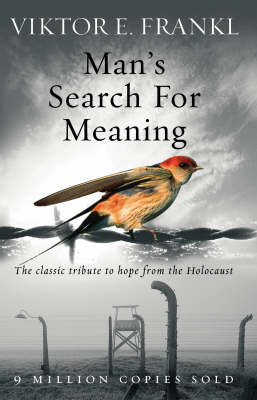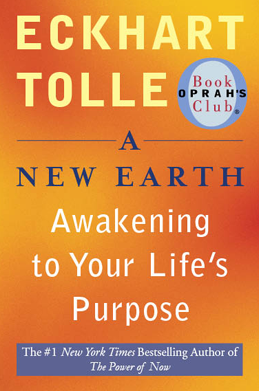|
Word Gems
exploring self-realization, sacred personhood, and full humanity
Editor's 1-Minute Essay:
Existentialism
return to "Existentialism" main-page
I find myself both drawn to and disdaining this subject of existentialism; that is, in terms of popular conception. Here is a typical definition:
Existentialism focuses on the question of human existence, and the feeling that there is no purpose or explanation at the core of existence. It holds that, as there is no God or any other transcendent force, the only way to counter this nothingness (and hence to find meaning in life) is by embracing existence.
Thus, Existentialism believes that individuals are entirely free and must take personal responsibility for themselves (although with this responsibility comes angst, a profound anguish or dread). It therefore emphasizes action, freedom and decision as fundamental, and holds that the only way to rise above the essentially absurd condition of humanity (which is characterized by suffering and inevitable death) is by exercising our personal freedom and choice.
In "The Myth of Sisyphus" (1942), Albert Camus uses the analogy of the Greek myth of Sisyphus (who is condemned for eternity to roll a rock up a hill, only to have it roll to the bottom again each time) to exemplify the pointlessness of existence, but shows that Sisyphus ultimately finds meaning and purpose in his task, simply by continually applying himself to it. (see philosophybasics.com)
Questions of purpose and meaning, to me, are extremely interesting and will occupy my attention for the next million years and beyond.
Current views of existentialism, however, plead ignorance and blind itself to that little, but significant, portion which might be apprehended during this mortal time on Earth.
the reality of the afterlife changes everything
Since the latter 1800s great strides have been made in accumulating scientific evidence for the existence of a post-mortem world. We no longer need harbor doubts in this regard. There is as much scientific evidence for the survival human consciousness as there is for a planet called Mars or that a person named Abraham Lincoln once lived in Illinois.
Twenty Nobel laureates - plus a large number of other notables - during the last 150 years have investigated such evidence and have accepted the reality of the afterlife. These investigators of world renown and stellar accomplishment constitute no mere ordinary, private opinion to be easily dismissed by skeptical review. These findings were not brought to bear in camera, not in a hidden corner, but were published for all the world to see -- which begs the question: Why have the existentialist intelligentsia, elite as they presume themselves to be, well informed as surely they must be and consider themselves to be, not addressed and acknowledged the paradigm-shattering verdict offered by the world's greatest scientists?
Editor’s note: When the facts don’t matter; when information is sifted and selectively accepted or rejected; when we’re committed to a conclusion from the start of a debate; then we’ve entered a world of cultish mindset. You cannot talk someone out of their religion, and words alone, new information alone, will not persuade a true-believer. We discussed this in the “Levels Of Consciousness” article. Those who “live” on the lower rungs of perception really believe in what they say, no matter how errant. It’s what they see, and it’s all they see. It doesn’t matter if they’re a PhD or a high school dropout, we’ll get the same closed-minded response. Help for them will not come by way of better arguments or more facts. They could have that now if they wanted it. What is needed is a ratcheting up to a higher level of consciousness. See the article for more discussion.

the fear of death in disguise
Ernest Becker explains the process to us (see discussion in other articles herein). The fear of death elicits from its victims, as coping mechanism, all manner of repressive activity. And some of this repression, ironically, takes the form of seemingly addressing the issue straight-forwardly - but only to marginalize so as to dismiss it in a kangaroo court.
The scientific evidence for the afterlife changes everything; as such, there is no warrant for endless pseudo-intellectual talk concerning metaphors of Sysiphus, pronouncements that "God is dead," or that this is the only life. We know for a fact that these materialistic declarations are just not true - utterly unsupported by facts at-hand.
Popular existentialism, with its doctrines diminishing human dignity, becomes one more quasi-religious, cultish movement representing an anti-humanistic view of life.
I submit that those who preach this nihilism do so as evasion-thinking, a self-propaganda ploy, encouraged by Hoffer's "spoiled self"; an attempt to escape the responsibility of every soul to face life honestly, to know and to develop itself, and to take its place as a mature son or daughter in the family of God.
a better view
Allow me to share better definitions of existentialism - supplied by the works of Viktor Frankl and Eckhart Tolle. Their contributions here are of inestimable value. The Word Gems site features thousands of pages of history's best wisdom, but the insights of these men must rank near the very top of that which is most valuable to secure in this life.
Viktor Frankl's "logotherapy" as aid to Man's Search For Meaning
"The term 'existential' may be used in three ways: to refer to
(1) existence itself, i.e., the specifically human mode of being;
(2) the meaning of existence; and
(3) the striving to find a concrete meaning in personal existence, that is to say, the will to meaning."
"Ultimate meaning necessarily exceeds and surpasses the finite intellectual capacities of man; in logotherapy [which focuses on finding a purpose in life] we speak in this context of a super-meaning.
"What is demanded of man is not, as some existential philosophers teach, to endure the meaninglessness of life, but rather to bear his incapacity to grasp its unconditional meaningfulness in rational terms."

CLICK HERE for an extended excerpt from Dr. Viktor Frankl's Man's Search For Meaning
Eckhart Tolle and life's meaning: discovering one's 'inner' and 'outer' purpose
"So the most important thing to realize is this: Your life has an inner purpose and an outer purpose. Inner purpose concerns Being and is primary.
"Outer purpose concerns doing and is secondary. While this book speaks mainly of your inner purpose, this chapter and the next will also address the question of how to align outer purpose and inner purpose in your life. Inner and outer, however, are so intertwined that is almost impossible to speak of one without referring to the other.
"Your inner purpose is to awaken. It is as simple as that. You share that purpose with every other person on the planet – because it is the purpose of humanity. Your inner purpose is an essential part of the purpose of the whole, the universe and its emerging intelligence."

CLICK HERE for an extended excerpt from Eckhart Tolle's A New Earth
Frankl's 'super-meaning' and Tolle's 'inner purpose' converge
While we were created 'in the image," we must choose to align ourselves with Universal Intelligence. No one can supply this sense of oneness with God but we ourselves. Effecting this wonder is our primary task as human beings. And though perceptions of bondedness with Divinity will grow stronger over time, the quest to do so, even a million years from now, shall always be our primary existential purpose.
|
Editor's last word:
Dr. Frankl states that some of his colleagues feel that the other philosophies of psychiatry, such as the Freudian and the Adlerian, when they are effective, reflect principles of Logotherapy. That is, unless a patient's neurosis is aided by an appeal to meaning and purpose, there will be no lasting relief.
Viewed in this light, a statement once made by Magda B. Arnold is justified: "Every therapy must in some way, no matter how restricted, also be logotherapy."
I thought of this expansive aspect of Frankl's work recently as I surveyed the "Dark Realms" page, the "mandated solitude and introspection." Traditional religion thinks in terms of punishment and retribution, with little thought given to personal change and education; indeed, Despotic Ecclesia would have it that, upon transition to the next worlds, change is impossible and that one's character and disposition, at the moment of death, are forever set in stone and unalterable. As usual, Big Religion finds itself on the wrong side of destiny.
But why should any of this be so? Why should an entire world, a dark world, be set aside for unthinking ones to virtually force them into a mental posture of introspection? Is this not extremely telling in terms of how God and the Guides view us and our constitutional make-up?
As we collect the various strands of evidence, it begins to become clear that meaning and purpose, and our requirement to access these, form the very air we must breathe. We human beings are just not happy unless our actions speak to some greater vision. There is so much richness built into the sacred soul - to a degree, as Father Benson loves to assert, "with no discoverable upper limit" - that, unless we walk a road of developing ourselves, of "unpacking" the hidden depths of being and its illimitable reaches, we can and will find no rest for ourselves. Speaking to our divine heritage, we cannot escape the sacred mandate to become fully human.
Dr. Frankl formalized this innate compulsion toward finding meaning and purpose in his Logotherapy. For our part, we would be wise to understand that the architectonic structure of the soul, which impels us in the direction of self-development, of fulfilling our destiny of having been "made in the image," must be satisfied if we are to find our happiness in life.
This happiness will relate to Twin Soul romance, as well. The Wedding Song speaks of these ordained two "traveling on" together, through life and eternity. Embedded within this celestial directive, they will find, each for the other, a source of affinity extending well beyond pleasant outward forms; each for the other, becomes meaning and purpose personified. Little wonder then, entangled in sacred destiny, they cannot bear to be apart.
let me state this another way
Image yourself living in Summerland, a hundred or a thousand years from now. You’ve now grown well accustomed to living the ideal life in a perfect environment. But, at some future time, will we ask the question, “Is this all there is?” When perfect scenery and perfect setting become commonplace, will we someday find ourselves jaded by this surfeit of “everything just right”?
As I study the afterlife literature, I am convinced that those who have not solved this problem eventually fall into destructive modes of thinking and attempt – though it’s not possible – to reincarnate or to “advance” to “higher” levels where, they believe, they will be able to shed their sense of “spoiled self” by losing their identities in a vast ocean of “spiritual cosmic oneness.” This dark dystopian view of the future, thankfully, is a myth, but many dysfunctional people on the other side work toward this nirvana of the identity-less existence. See further discussion in "the 500 tape-recorded messages from the other side" article.
We need to understand why and how this existential crisis could happen – and this, in a “perfect” environment. It’s a result of not finding the inner riches of the true self. And it is this quest, the accessing of Frankl's “super-meaning” and Tolle's “inner purpose,” an emphasis on “being” more than “doing” concerning the meaning of life, that we must consider.
"Having a purpose" in life is necessary for mental health, as Frankl and other doctors inform us. And so how shall we create meaning for ourselves in a future time when all needs are answered in a perfect world?
The answer is, we find our truest purpose by becoming what God meant us to become; we do this by going within, mining the depths of the soul. We find our purpose and fulfill our destiny by becoming more like God. This is our primary purpose, now and a million years hence. Discovering the inner riches of the true self is not a one-time event, over and done with. It’s an eternal quest, a “traveling on,” as The Wedding Song puts it, that knows no end.
Editor’s note: One must discover the purpose for one’s life before peace of mind is won. But, what happens when that life, in a sense, becomes a veritable joint-life, the lofty status of sacred “One Person,” in the realization of Twin Soul love?
There is a myth of marriage which asserts that two human beings, male and female, will find their completion by coming together in relationship. Well, on one level of existence, this is correct, but only at the periphery of life. It is not correct at the deepest level of being. We discussed this paradox in the “Prometheus” book. The task and purpose of every human being is to find one’s innate wholeness and completeness within the sacred soul; the soul which was made perfect “in the image of God.” In so doing, one finds one’s true strength in realization that one is linked to and part of God. As such, in this self-actualizing process, in a sense, by the time one arrives at this self-perception of being able to stand alone, of not needing another to affirm one’s value, then, at this point of self-sufficiency, paradoxically, one is now ready to enter sacred, eternal romantic relationship.
This phenomenon of authentic marriage constitutes a very special subset of the requirement to find one’s life-purpose. A poet has informed us that, without one’s true love, we will not find sufficient reason to “stay alive for”; this is another paradox for the "perfect soul," as, without her, all existence fades into a pervasive meaninglessness. Twins, aware of each other but living apart, soon discover the sharp-edged reality of this statement. Together they will explore the depths of this mystery for the unending future, relative to who and what they are to each other.
How could it be otherwise for those "made in the image"? Does not the sacred couple mirror the ultimate reality, the apex of being, of Mother-Father God?
|
|
both ‘whole’ and ‘part’, individually assertive yet of something larger
Editor’s note: The concept that we, as human beings, souls, made in the image, are perfect, in need of nothing at core essence, and yet requiring something more, leads us to the term “holon.” It’s a Greek word meaning “whole and part.”
“The term was coined by Arthur Koestler in The Ghost in the Machine (1967). In Koestler's formulations, a holon is something that has integrity and identity while simultaneously being a part of a larger system; it is a subsystem of a greater system… The notion of a holon emerges from the observation that everything in nature is both a whole and a part. This is true of atoms, which are whole in themselves, but also parts of molecules; molecules, which can be both whole and part of cells; and cells, which are both autonomous units and parts of organisms. It is also true for human beings, who have an independent life [but] are part of social systems. Every holon is willing to express two contradictory tendencies: to express itself, and to disappear into something greater.” (quotations from Wikipedia)
|
|


